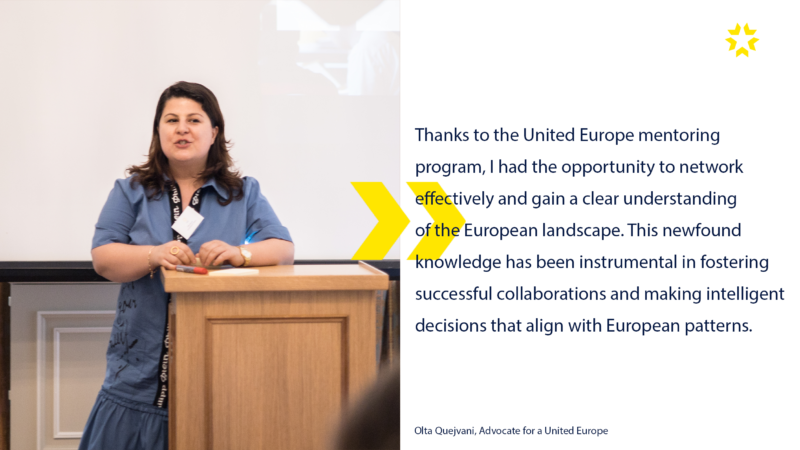Universities face evolving challenges and expectation, requiring them to broaden their focus beyond mere knowledge such as transmission and integrate research and innovation into the community. To achieve this, it’s imperative to continuously secure funds for adapting to societal needs and fostering new developments.
While government support and European programs have traditionally been primary sources of funding for universities, there is room for improvement, especially in terms of engaging the business sector. European universities have set exemplary practices in this regard compared to their counterparts in the Western Balkans, including Albania. Albanian universities having more than 30 years functioning under democratic principles, still face the challenge of strengthening their financial capabilities by tapping into the business sector.
The business sector and academia often seem isolated from each other in terms of funding and collaboration, which is likely a reflection of their historical separation: To bridge this gap, universities, especially in Albania, must develop their strategies to proactively engage the business sector. While there may not be a legal mandate enforcing this approach, it should be a smart institutional strategy to secure long-term results in research and innovation.
European practice demonstrates that some companies provide consultations on EU law and regulations, and they can be valuable partners in connecting universities with the business sector. Albanian universities should seek to

understand these structures’ mission and vision, which can help them prepare their own strategies. Additionally, universities can encourage the Ministry of Education t
o strengthen business ties, rather than solely relying on governmental support. This might involve involving the Ministry in the process of establishing and developing relationships between universities and businesses by also involving the scheme into the national strategies or relevant documents in this regard.
Universities can play a pivotal role in attracting business investments by fostering collaboration and involvement of the business sector in research and development projects. In the past decade, Albanian universities have been primarily focused
on accessing EU funding schemes for research and innovation, neglecting potential opportunities with the business sector. Many EU grant programs promote collaboration between academia, communities, and government, and while these programs may offer limited opportunities for business sector involvement, universities may need to take calculated risks during the application process.
Adding business sector participation as an eligible component in grant programs like Horizon Europe, EU for Europe and Marie Skodowska Curie would encourage closer collaboration. To enhance collaboration, universities can explore models like SPARK and Dr2Consultants, companies that offer consultancy services related to EU law implementation for business stakeholders. Albanian universities can establish collaboration agreements with these entities to gain updated insights in this area. The Albanian National Institution for Research and Innovation (AKKSHII) can provide a list of EU programs that promote business involvement in academia and university development, particularly those focused on entrepreneurship. The potential benefits of such collaboration are numerous, including offering new forms of support, advancing technology and innovation, facilitating recruitment of graduates into businesses, and bridging the gap between theory and evidence, thereby creating a steady pipeline of talent and mentoring future data storytellers.
As Albania moves closer to EU integration, the imperative to engage more effectively with the business sector is evident, aligning with the EU’s strategic goals. The concept of University Business Cooperation (UBC) is gaining attention at the European Commission, and although it remains a relatively underdeveloped area, there are promising practices emerging. European universities have already demonstrated the value of forging collaborations, and there is no need to wait for a formal EU policy document to drive such initiatives.[1] The absence of such an EU policy document, should not be viewed as a void hindering universities and the business sector from independently cultivating collaborative relationships. On the contrary, the absence of a dedicated EU-level policy on UBC has not deterred these entities from forging their own collaborations. Yet, considering the potential impact and recognition such a policy could bring, it becomes apparent that having a specific document addressing UBC at the EU level would significantly elevate its importance. This could catalyze increased attention and commitment from both universities and the business sector towards fostering sustained collaboration.
The current ambiguity in the position of UBC within European policymaking diverges from the successful initiatives undertaken by numerous European universities, which have proactively established diverse levels of collaboration. A brief exploration of websites belonging to well-known European universities reveals an abundance of exemplary practices in this arena. This wealth of examples negates the necessity of awaiting national, regional, or European documents explicitly addressing university-business collaboration. Instead, universities can take the lead as initiators in bridging the gap with the business sector, contributing to the enhancement of capacity building, research, and innovation.
Turning our focus to Albania, still on the path of EU integration, there are valuable hints and tips that warrant promotion and spotlighting:
- Annual Progress Reports on Integration highlight the potential to align business development with research and innovation, presenting an opportunity for academia and business sector collaboration.
- INSTAT (Institute of Statistics) should provide data correlating business development with academia, shedding light on how many graduates are employed in the business sector and the extent of collaboration between businesses and universities.
- The National Strategy of Education emphasizes the need for cooperation between business associations and universities, with the aim of aligning curricula and qualifications with market needs.
- The National Plan of EU Integration (2022-2024) can potentially incorporate indicators that encourage the implementation of University Business Cooperation (UBC), even though it may not be a formal requirement.
- The National Agency of Research and Innovation has already taken steps to support UBC projects, with a focus on community development, SMEs, environmental issues, and technology research.
- Regional collaboration as seen in the Stars EU Alliance, offers opportunities for universities to engage with international partners and explore best practices for UBC.
In conclusion, the collaboration between universities and the business sector is not solely dependent on national policies but also on the proactive efforts of universities themselves. Albanian universities should work toward pushing the government to diversify and enhance instruments for promoting UBC. They must also craft their strategies to leverage national resources and engage with EU and regional structures. While the European Commission’s attention to UBC is increasing and certainly more is needed regarding specific EU programmes, waiting for formal EU policies is not necessary. Albanian universities can take the initiative in building stronger ties with the business sector, which will benefit academia, business, and the broader community in the long run.
We would like to thank the author, Olta Quejvani, for her contribution and participation at the United Europe Mentoring Program (Class 2022/23).




